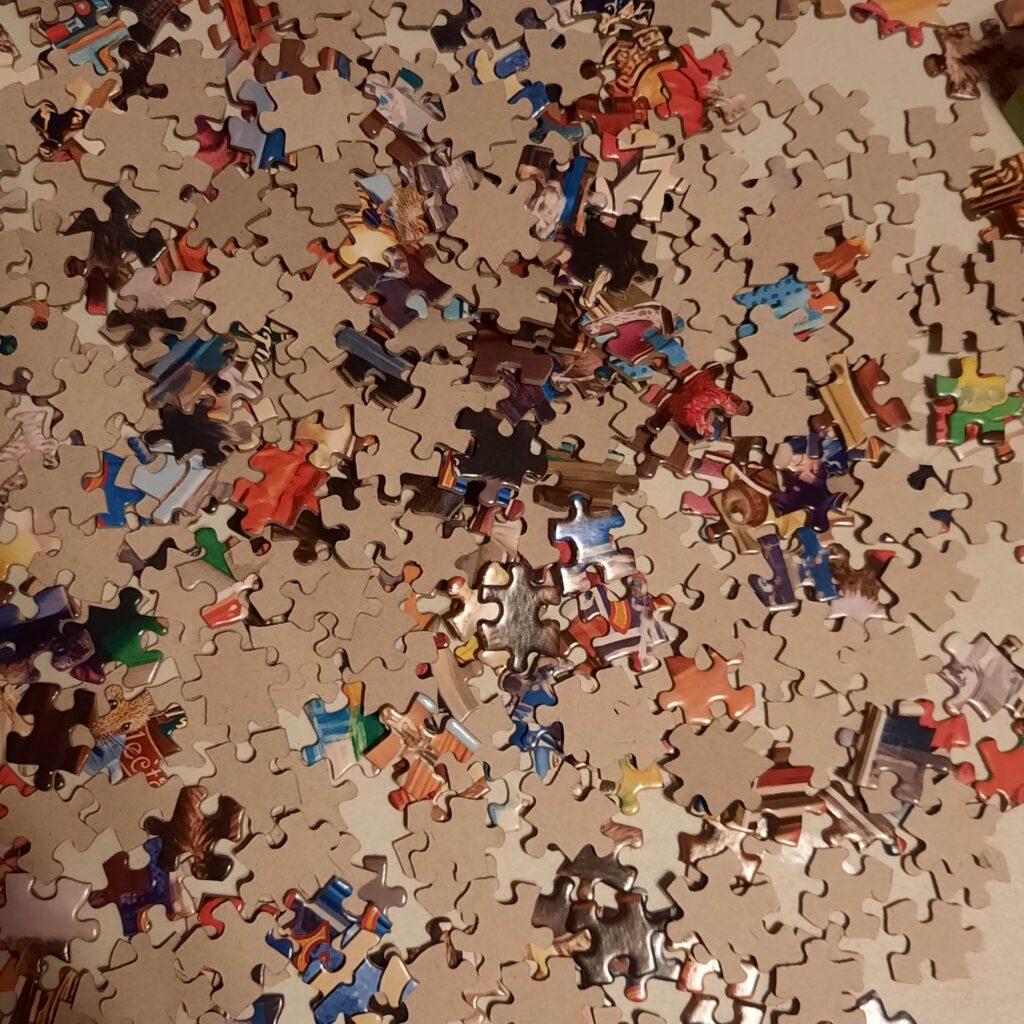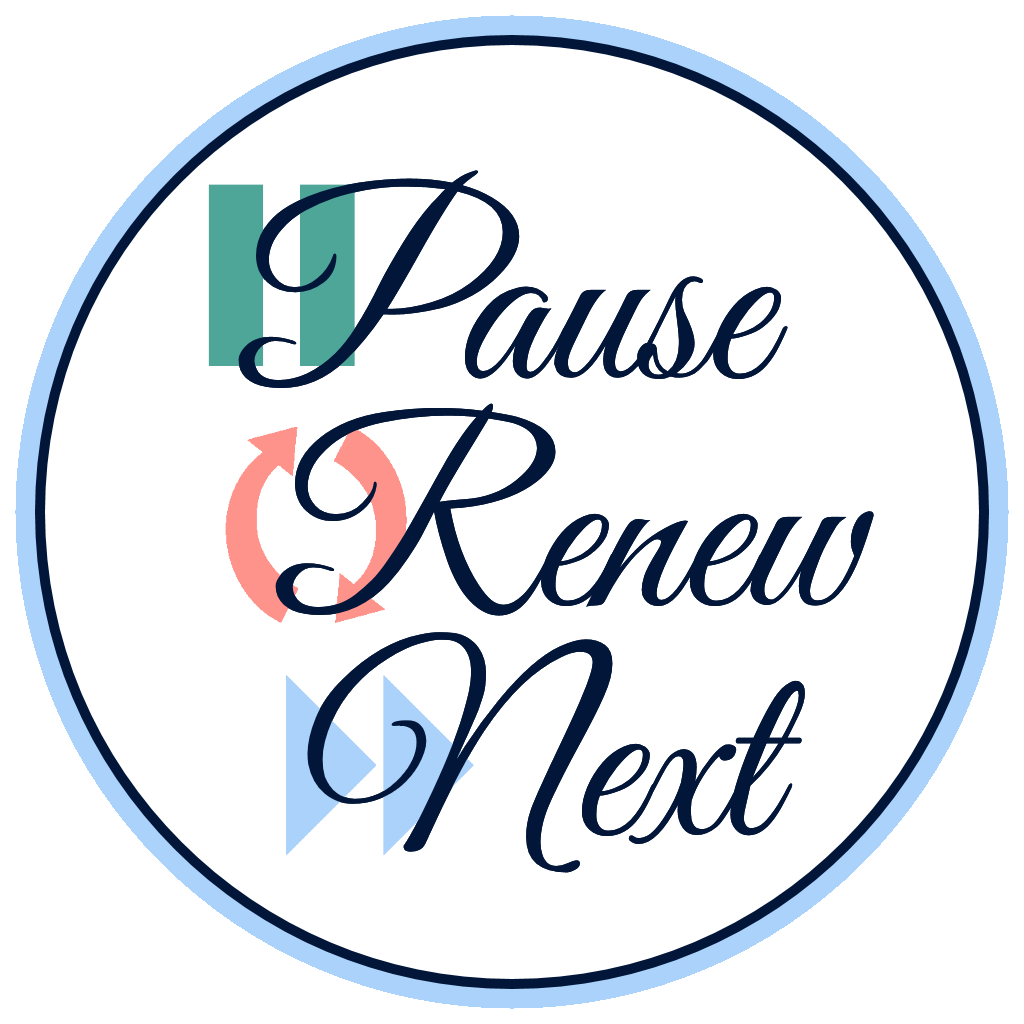One of the results of trauma is fragmentation. It is the shattering effect produced by suffering. In the face of profound suffering, we struggle to make sense of the pieces left behind. In fact, traumatic memories themselves are often fragmented and incoherent. They’re told and remembered in snippets and snatches, the story coming out disjointedly rather than in a cohesive narrative.
Trauma affects our stories. The fragmentation process creates blanks and question marks in the pages of our lives. It can cause us to question ourselves, our actions, our roles, or the role that others have played in our stories. It can even make us want to stop paying attention to our stories altogether.
Trauma and the resulting fragmentation also affects our bodies. We are not disembodied spirits or brains interacting in the world. We have bodies that have been affected by suffering. Our bodies have been harmed intentionally or unintentionally. Our bodies have been sick. Our bodies have undergone treatments. Some bodies have been used. Some bodies have undergone diets, workout regimens, or surgeries to become more idealized. Some bodies have been covered so they might not be seen. Some bodies have been uncovered so that too much was seen.
Fragmentation is evidenced in our bodies, because as Bessel van der Kolk’s book is aptly titled, “The Body Keeps The Score.” What is not remembered by our minds and explicit memories is remembered by our bodies.
Trauma often comes back as a reaction not a memory. These reactions are felt as sensations in the body, such as a faster heart rate, rapid breathing, throbbing temples, sudden panic, irrational anger, or a sense of hypervigilance. Our bodies were designed beautifully, and they do a good job remembering and reminding us of the fragments we’d rather ignore or forget.

You see, fragmentation is evident and obvious in someone who suffers from PTSD. I believe, however, that on a smaller scale, everyone on planet earth is affected by fragmentation.
To be human is to suffer. Being human means that we live in a body that will be injured, get sick, and slowly degenerate. To be human means we will have relationships that will disappoint, have conflict, produce pain occasionally, and perhaps even abandonment. It means we will grow up in a world where slowly our innocence is stripped away until we have borne witness to, or perhaps even experienced, the knowledge of evil in the world.
We are all undergoing fragmentation.
Existing in a fragmented state is like living in a house where there are rooms and secret channels that are shut off and kept closed. Fragmentation can mean avoiding memories, things, places or people that are reminders of danger or harm. Fragmentation requires compartmentalization to make life more manageable. The traumatized and shamed parts of ourselves are hidden away.
Fragmentation is the mind and body’s way to maintain a semblance of safety in a world that our nervous systems deem unsafe.

I think about fragmentation much these days. Evidence of the fragments are everywhere.
I see it in my counseling office. I see it in myself.
I see it in the distance and discord in our communities. I see it in the divides widening between political party against political party. I see it in generations dividing and distancing from other generations. I see it in family members distancing or turning against other family members. The list is extensive.
Distance, avoidance, division, and animosity are all protective responses. They are safety mechanisms in a fragmented world that does not feel safe. Through these avenues, we can compartmentalize the threats at hand. Safety is the game.
Notice how much anger and fear are at play on social media, on the news, and in the online rhetoric. Our fight or flight responses are constantly activated.
Our nervous systems are hijacked, and we are being divided, within and without. There’s so much fragmentation actively occurring.
Thankfully, fragmentation is a part of the story, but it doesn’t have to be the end. Fragmentation is a result of fear and suffering, but integration is the process of healing.
Integration is the reconnection of the divided parts. In the language of trauma recovery, integration takes chaotic and disjointed flashes of story and composes them into a coherent narrative. Integration means finding places of emotional safety and attuning to our bodies again. It means working through what has been unresolved and gaining tools and resilience to move forward. Integration is not a fast or hurried process. It takes time and and is always done in the presence of safe people.
Integration, in my eyes, is the process of restoration and healing.

My pastor often says that church is the fellowship of the broken. We are all fragmented people living on a fragmented planet. All the while, in Christ, we are being made new. (2 Corinthians 5:17)
As we walk with Christ, He goes into closed off rooms in our house and cleans them. Not all at one time, but slowly as we are ready, and as He works to make us more like Himself. He is the great Integrator. He takes broken things and makes them beautiful.
Practically though, in our everyday lives, there are ways that we can pursue our own integration process.
One place we can start on the road to integration is to notice our own reactions and triggers. These are glimpses into our own fragmentation. We can also notice the places in relationships and communities around us where fragmentation is taking place.
The fragmented places you discover need care. Be gentle with yourself and others as you notice fragmentation. There’s no hurry in the process of healing. Take time to journal, pray, and process with safe people (therapist, pastor, friend, mentor, spiritual director,etc.), as you work to make a coherent narrative out of fragmented pieces.
You, friend, are invited to be an active participant in rebuilding and integrating broken and fragmented places, both in yourself and in your community. (II Corinthians 5:18-19, Isaiah 58:12)
Pause, Renew, Next:
For reflection, prayer and journaling:
In what places in yourself and your community do you notice fragmentation?
In what places in your story have you already seen Christ come and take fragmented parts and begin to integrate them?
One place we can start in our integration journey is to notice our own reactions and triggers. These are glimpses into our own fragmentation. Next time you notice a big reaction in yourself, get curious. Ask questions like,
Where did that come from?
What did that bring up for me?
What do I need to help myself regulate?
Then talk to someone or journal about it to help make sense of the experience.
May you be encouraged on your journey with Jesus.

